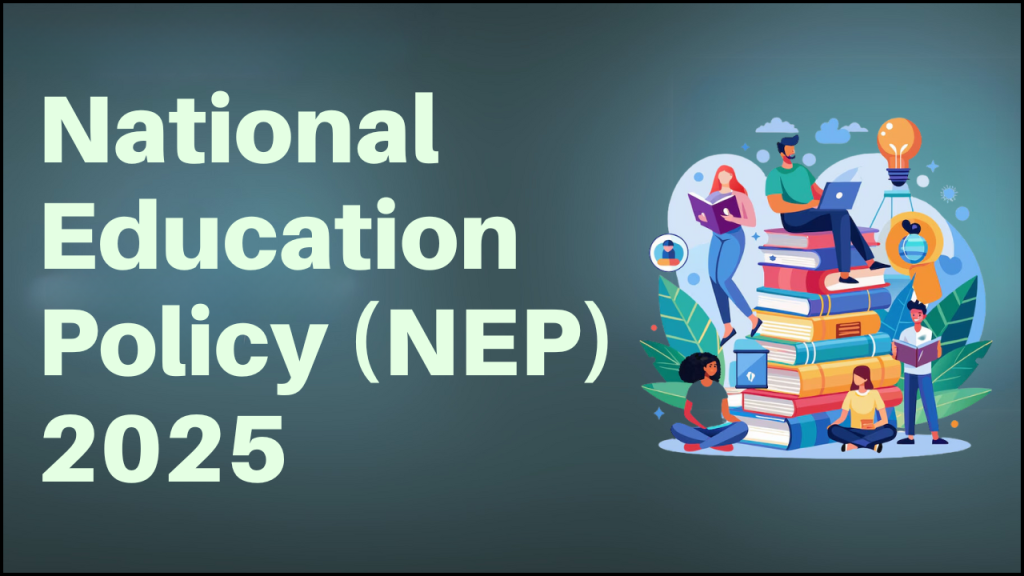
The National Education Policy (NEP) 2025 marks a significant milestone in India’s educational transformation, building upon the foundation laid by NEP 2020. Focused on fostering innovation, inclusivity, and global competitiveness, NEP 2025 aims to reimagine higher education to meet the demands of a rapidly evolving world. This article explores the key features of NEP 2025 and its impact on Higher Education Institutes (HEIs).
NEP 2025 in Higher Education
- Holistic and Multidisciplinary Approach:
- NEP 2025 emphasizes the adoption of a multidisciplinary curriculum, promoting flexibility in course choices.
- Students can now opt for combinations of arts, sciences, and vocational subjects, allowing diverse learning pathways.
- Emphasis on critical thinking, creativity, and analytical skills ensures a well-rounded educational experience.
- Credit-Based Learning System:
- The policy introduces a modular credit system, enabling students to accumulate and transfer credits across institutions.
- Academic Bank of Credits (ABC) allows seamless transitions between programs and institutions, promoting lifelong learning.
- Skill Development and Employability:
- Focus on skill-based education aims to bridge the gap between academia and industry requirements.
- Integration of vocational training within degree programs prepares students for dynamic job markets.
- Internships, apprenticeships, and collaborative projects with industries enhance practical exposure.
- Technology Integration:
- Emphasis on digital learning platforms and e-resources makes education more accessible and flexible.
- Virtual labs, AI-driven learning tools, and hybrid learning models facilitate personalized education.
- Creation of digital repositories for research and academic resources supports knowledge dissemination.
- Research and Innovation:
- NEP 2025 prioritizes research and development by establishing dedicated research funding agencies.
- Encouragement for interdisciplinary research fosters innovation and problem-solving capabilities.
- Partnerships with global universities and research centers enhance international collaborations.
- Inclusivity and Accessibility:
- Measures to ensure equitable access to higher education for marginalized and underprivileged communities.
- Scholarships, financial aid, and infrastructure improvements promote inclusivity.
- Multilingual education frameworks support regional and cultural diversity.
- Regulatory Reforms:
- Establishment of the Higher Education Commission of India (HECI) as a unified regulatory body.
- Simplification of accreditation and quality assessment processes.
- Greater autonomy to HEIs for curriculum design, governance, and decision-making.
Impact on Higher Education Institutes (HEIs)
- Curriculum Transformation:
- HEIs are required to redesign curricula to align with interdisciplinary and skill-based learning models.
- Greater flexibility in program structures enables students to tailor their education based on career aspirations.
- Faculty Development:
- Faculty training programs focus on modern teaching methodologies and technology-enabled learning.
- Emphasis on mentorship and collaborative teaching fosters faculty-student engagement.
- Infrastructure Enhancement:
- Investments in digital infrastructure and smart classrooms modernize learning environments.
- Libraries and research facilities are upgraded to support digital and hybrid learning.
- Global Collaborations:
- Increased partnerships with foreign universities facilitate exchange programs and joint research initiatives.
- Dual-degree programs and credit transfers enhance international mobility for students.
- Quality Assurance:
- Implementation of outcome-based education and continuous evaluation systems ensures quality enhancement.
- HEIs adopt performance metrics to assess institutional growth and student achievements.
Conclusion
NEP 2025 envisions a dynamic, inclusive, and globally competitive higher education ecosystem in India. By focusing on flexibility, skill development, digital integration, and research innovation, it paves the way for holistic learning and employability. For Higher Education Institutes, the policy serves as a roadmap to align with international standards while addressing local challenges. As India embraces NEP 2025, it promises to empower future generations with the knowledge, skills, and values necessary to thrive in a rapidly changing world.